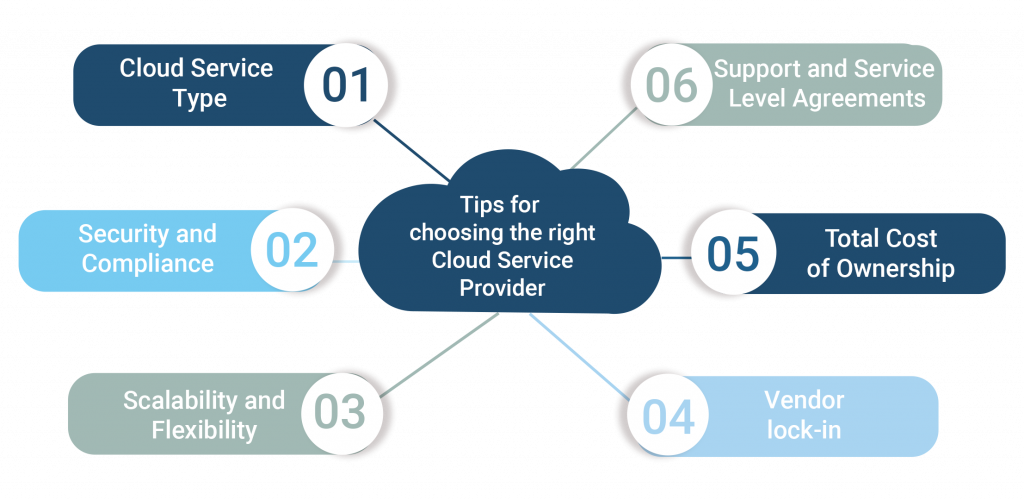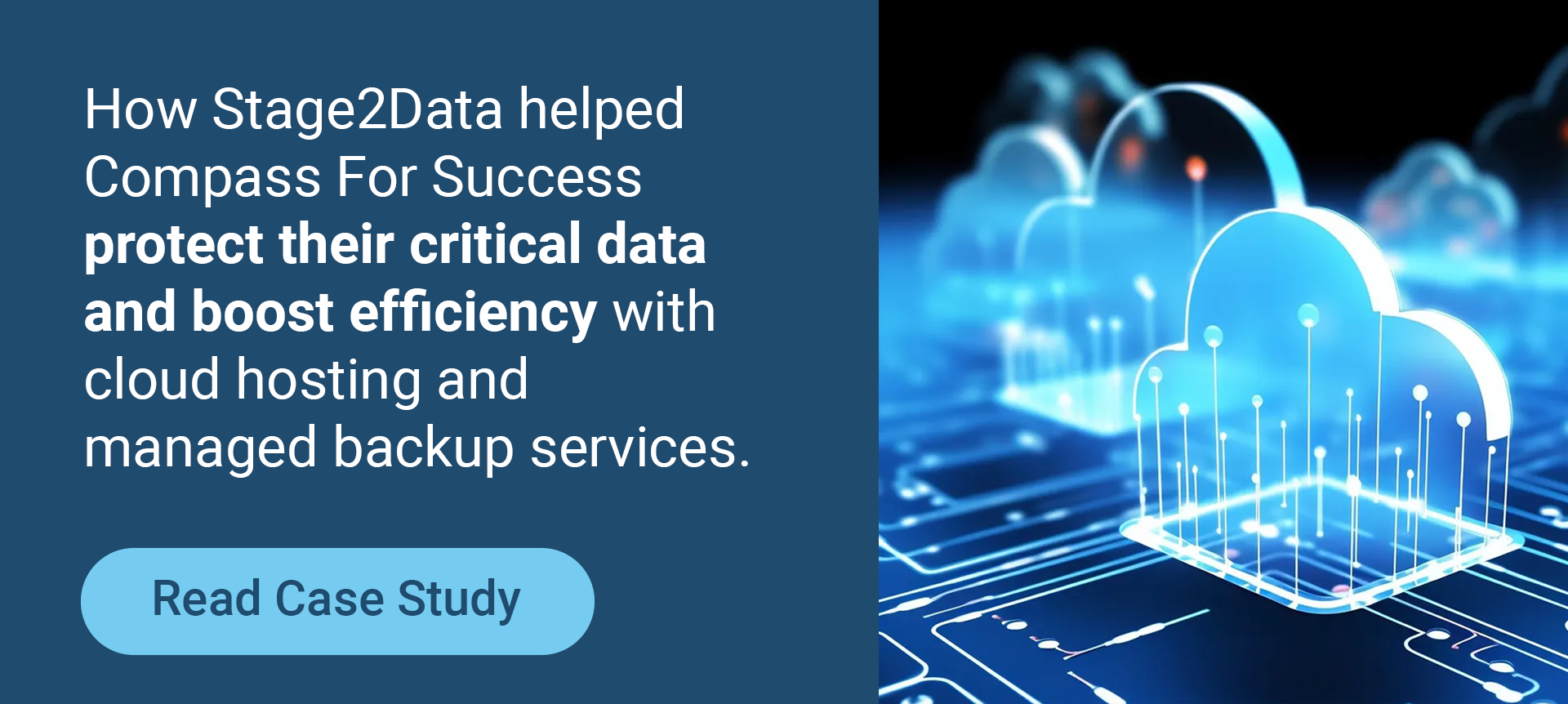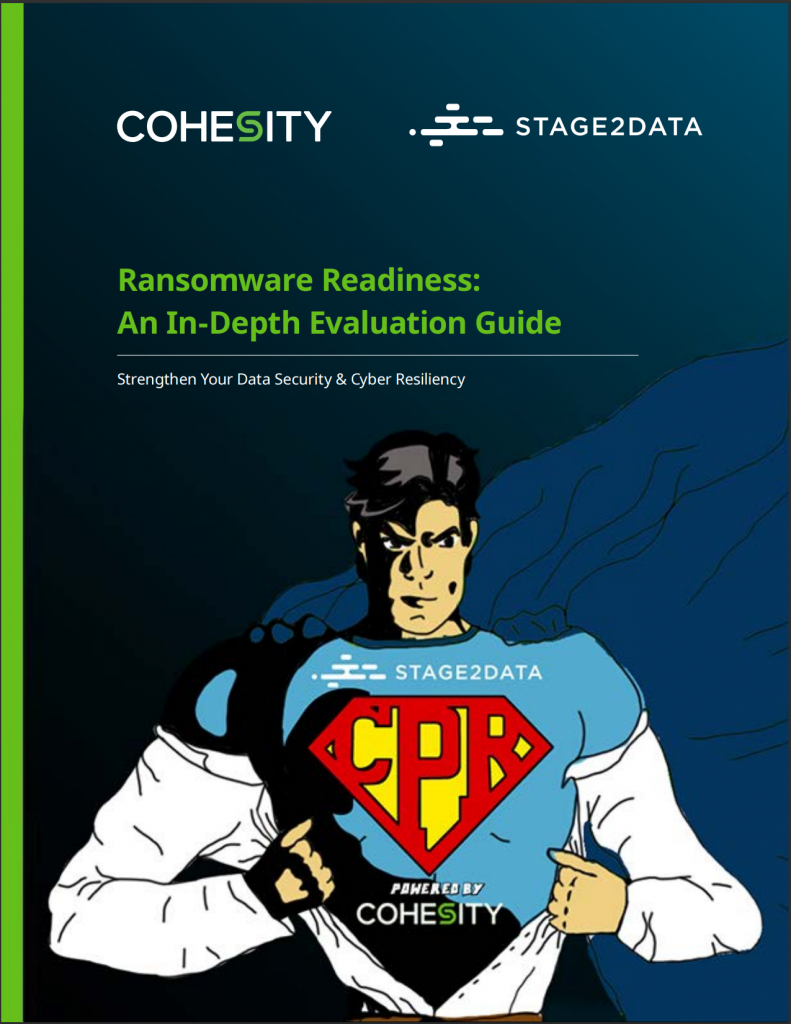Every business today needs a reliable cloud service provider. However, the sheer number of offerings and providers out there can make this an overwhelming decision. There are hundreds of thousands of cloud service providers worldwide, so how do you even begin to choose?
This causes many businesses to fall into the trap of going with well-known names just for the sake of the name. Alternatively, they might choose the cheapest option just to save some money but forget what the true yardstick should be: Their business-specific needs. The result? They end up locked in with costly, inflexible packages that don’t deliver.
Some mistakenly argue that all cloud service providers essentially offer the same services, and therefore, any choice would suffice.
This cannot be further from the truth. And it oversimplifies the complexity and uniqueness of each provider.
Sure, most providers can offer cloud storage, data backup, ransomware protection, and so on. But there are significant differences in security measures, compliance, customization options, pricing models, and customer support.
Let’s explore the potential and benefits of cloud technology for your business and how to choose the right one.
What is a Cloud Service Provider?
A cloud service provider is a company that offers a range of computing services over the Internet. These services can include data storage, servers, databases, networking, and software. This collective suite is known as cloud computing.
Stage2Data’s cloud computing services include Disaster Recovery-as-a-Service (DRaaS), Network Recovery-as-a-Service (NRaaS™), Backup-as-a-Service (BaaS), and Managed Cyber Security.
By entrusting their IT infrastructure to a cloud service provider, organizations can:
- scale operations and achieve greater efficiency
- enhance security
- reduce costs
- focus on their core business functions.
It’s an intelligent move in today’s digital age, transforming how businesses operate and thrive.
Let’s dive into the benefits of choosing the right service provider and the challenges when making the wrong choice.
Benefits and Challenges of Using a Cloud Service Provider
Firstly, let’s take a look at the common reasons organizations turn to cloud services:
- Reduced Costs: Cloud service providers offer a cost-effective solution by eliminating the need for significant upfront investments in IT infrastructure. Furthermore, this facilitates a shift from capital expenditure to operational expenditure.
- Security: With stringent security protocols, cloud service providers provide a robust shield against cyber threats. They ensure your data remains safe and secure, fostering trust and confidence.
- Data Loss Prevention: In the event of any unforeseen circumstances, cloud service providers safeguard your data. They use automatic cloud backup and robust disaster recovery solutions to effectively mitigate data loss risk.
- Regular Software Patches and Updates: Cloud service providers ensure your systems stay up-to-date with the latest patches and software updates. This not only enhances system performance but also fortifies security.
- Reliability: With high uptime and redundant systems, cloud service providers provide reliable access to your data and applications, ensuring business continuity.
- Mobility: Cloud service providers facilitate remote access to your data and applications, empowering your team to work from anywhere, anytime.
- Unlimited Storage Capacity: Cloud services let you scale your storage needs on-demand, offering virtually unlimited storage capacity.
While the benefits are compelling, it’s vital to also consider the potential challenges to fully leverage the power of cloud technology. There are, naturally, also a number of challenges you have to look out for:
- Performance Can Vary: While cloud services offer unprecedented convenience and scalability, it’s important to note that performance can vary. Factors such as internet connection speed, server location, and the number of concurrent users can affect the service’s responsiveness.
- Lack of Technology Compatibility: The world of technology is vast and diverse. Sometimes, certain software or applications may not be fully compatible with your chosen cloud service. This can lead to operational hiccups. However, reputable cloud service providers will offer a wide range of compatibility options.
- Cybersecurity Threats: Cybersecurity remains a paramount concern as cybercrime is predicted to cost $8 trillion in 2023. While cloud services have robust security measures in place, no system is completely impervious to threats. It’s vital to choose a provider that prioritizes security and offers advanced protection features.
- Lack Of Support: Sometimes, you might face issues that are beyond your technical expertise. In such instances, having accessible and responsive support from your cloud service provider is crucial. Some providers may fall short in this area.
So, how do you choose the right cloud service provider? Here are five tips to get you started.

6 Tips for Choosing the Right Cloud Service Provider
When it comes to picking the right cloud service provider, it’s not a decision to be taken lightly. It requires a deep understanding of key factors such as security compliance, scalability, service level agreements (SLA), total cost of ownership, and the potential for vendor lock-in.
Below, we’ve compiled a list of five simple yet critical tips to guide you through this process.
1. Cloud Service Type
Before looking at any other tips, first ask yourself what kind of cloud you really need – public, private, and hybrid.
If you’re a small to medium-sized business, chances are, the public cloud is probably your go-to option. However, for larger corporations, things can get a bit more complex. They often require a blend of multi-cloud and hybrid-cloud strategies.
So, the question is, which one suits your needs?
2. Security and Compliance
Security should be a top priority when choosing a cloud service provider. Look for a provider that has robust security measures in place, such as:- Encryption
- Firewalls
- Intrusion detection systems
- Regular security audits.
3. Scalability and Flexibility
As your business evolves, your requirements from a cloud service provider will likely shift as well. Therefore, selecting a provider that can grow and adjust alongside your organization is crucial.
It’s equally important to align your choice of a cloud service provider with your strategic goals. The ideal provider should smoothly integrate with your existing technology stack, ensuring minimal disruption and maximizing efficiency.
4. Support and Service Level Agreements
Assess the level of customer support provided by the cloud service provider. You want to ensure that if any issues arise, you’ll be able to get the help you need quickly and efficiently.
Choose a provider that offers responsive, helpful support. Evaluate the types of support provided (like phone, email, or chat) and their availability hours. Also, consider whether the provider can offer an SLA that guarantees a certain degree of uptime.
It’s crucial to remember that several providers may offer somewhat restricted support, necessitating collaboration with third-party partners to fill this void. Always keep an eye on the provider’s capacity for future growth and innovation
5. Total Cost of Ownership
Each cloud service provider has a unique pricing structure, making side-by-side comparisons challenging. But don’t be swayed by low upfront costs.
Consider the total cost of ownership, which includes not only the subscription fees but also costs related to implementation, training, support, and potential downtime. The key is to thoroughly map out your organization’s requirements and then determine which pricing model aligns best with your needs.
6. Vendor lock-in
Lastly, vendor lock-in can limit your flexibility and lead to increased costs over time.
Cloud partnerships are long-term commitments. Understanding the service provider’s future roadmap is crucial. So is assessing their ability to anticipate trends and innovate. Ask questions like: What is the provider’s strategy for the future? Will they be able to support my business as it grows and evolves?
Choose a provider that offers transparent, flexible contracts and supports data portability. And, importantly, one that allows you to switch providers without incurring significant costs or disruptions.
Today, the cloud underpins most new technological disruptions...and has proven itself during times of uncertainty with its resilience, scalability, flexibility, and speed.
Gartner
Work With A Reliable Cloud Service Provider
A cloud service provider can make or break your business. And as we’ve shown above, choosing the right cloud service provider for your business is about more than popularity or price.
It’s about finding a reliable partner that aligns with your business goals. One that offers the right balance of data security, scalability, reliability, and support. What you need is a service provider that not only offers top-notch services but also stands by you, guiding and supporting you every step of the way.
The best service partner is one whose services are built on three pillars – cybersecurity, disaster recovery and the often-neglected networking portion crucial to these services.
Ready to take the leap?






